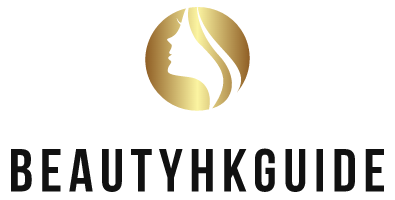How to detect nuclear radiation, what are the application areas of nuclear radiation sensors

Nuclear radiation is a type of radiation. In a broad sense, radiation is energy in the form of waves or moving particles that propagate into surrounding space or matter. Examples include acoustic radiation, thermal radiation,digital nitrate tester electromagnetic radiation and nuclear radiation. Nuclear radiation includes both radiant and particle radiation. Nuclear radiation is a stream of microscopic particles released by the nucleus of an atom during its transformation from one structure or one energy state to another. Nuclear radiation ionizes or excites matter and is therefore called ionizing radiation. Ionizing radiation is divided into direct and indirect ionizing radiation. Direct ionizing radiation includes charged particles such as protons. Indirect ionizing radiation includes photons, neutrons and other uncharged particles.
Nuclear radiation technology must be analytically measurable and perceivable by a specialized instrumentation system.radiation detectors Nuclear radiation sensors are sensors that utilize these radioactive isotopes to study for data measurement, also known as radioisotope sensors. Nuclear radiation sensors mainly include a variety of radioactive sources, detectors and signal processing conversion control circuits. Radioactive source management is generally disk-shaped (β radioactive sources) or filamentary, cylindrical, circular piece (γ radioactive sources). Nuclear radiation sensors work based on the absorption of rays by the substance under test, backscattering or ionization and thus excitation of rays on the substance under test. Radioactive isotopes in the process of decay formation constantly emit a number of particles (or rays) with a certain need for energy, including alpha particles, beta particles, gamma rays and neutron rays.
Nuclear radiation sensor applications.
1.Industrial field:Nuclear radiation sensors in the industrial field of application. For example, in the production and processing of radioactive materials, nuclear radiation sensors have the function of monitoring and controlling radiation levels.geiger counter handheld In addition, nuclear radiation sensors can also be used in thermal power plants, chemical plants, radioactive waste disposal facilities and other industrial sites for radiation monitoring and environmental monitoring.
2. Medical Industry: Nuclear radiation sensors are used in the medical industry. For example, in the process of radiation therapy, nuclear radiation sensors can be used to measure and monitor the radiation dose received by the patient. In addition, nuclear radiation sensors are widely used in nuclear medicine imaging, such as radionuclide and positron emission computed tomography (Pet), in order to diagnose and evaluate various causes.
3. Environmental monitoring: nuclear radiation sensor in the field of environmental monitoring also has a certain significance. It is used to monitor the level of radiation in the air environment, to evaluate the level of natural radiation and trends. In addition, nuclear radiation sensors can also be used for radiation monitoring of environmental media such as water, soil, food, etc. to ensure the environment and the health of everyone.
4. Nuclear energy industry: nuclear radiation sensors in the nuclear energy development industry. Can be used to quickly monitor the level of radiation capacity of nuclear reactors, to avoid the harm caused by the leakage of radiation information. In addition, nuclear radiation sensors can also be used for nuclear fuel transportation, nuclear waste resource management and radiation monitoring of nuclear facilities. Through the data real-time monitoring and recording radiation service level, can get timely research to find potential problems and take some corresponding measures.
5. Scientific research: nuclear radiation sensors in the field of scientific research applications. Mainly used in nuclear physics experiments, astrophysics, geology and archaeology and other fields of research. The sensor can obtain accurate radiation measurements, providing data support for scientists and promoting research progress in various fields.
Nuclear radiation sensors are widely used and play an important role in many industries such as industry, medicine, nuclear energy, environment and scientific research.
Nuclear radiation radioisotope sensors acoustic radiation
1

- sake tips
- Mature Brand Presence
- storage offline
- PDF default
- students
- Transit Visa
- cold chain items
- cms system
- lithium-ion batteries
- Bucket vacuum cleaners
- quartz stone
- sex toys industry
- Door-to-door foot massage
- bedroom
- wood engraving machine
- program
- SEO optimization
- sponges
- choose a good motor
- File menu
- Freight Forwarder
- Hygienic Sentinel
- multiple words
- high-grade delicate material curtains
- sea transportation
- best phone controlled vibrator
- person's financial
- safety
- Refrigerant development history
- PCB

.jpg?x-oss-process=image/resize,p_100/format,webp)














.jpg?x-oss-process=image/resize,p_100/format,webp)

.png?x-oss-process=image/resize,p_100/format,webp)